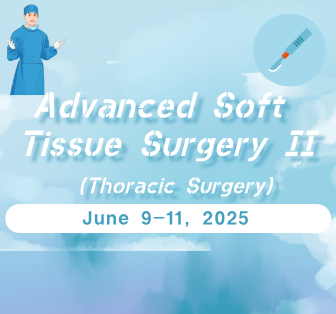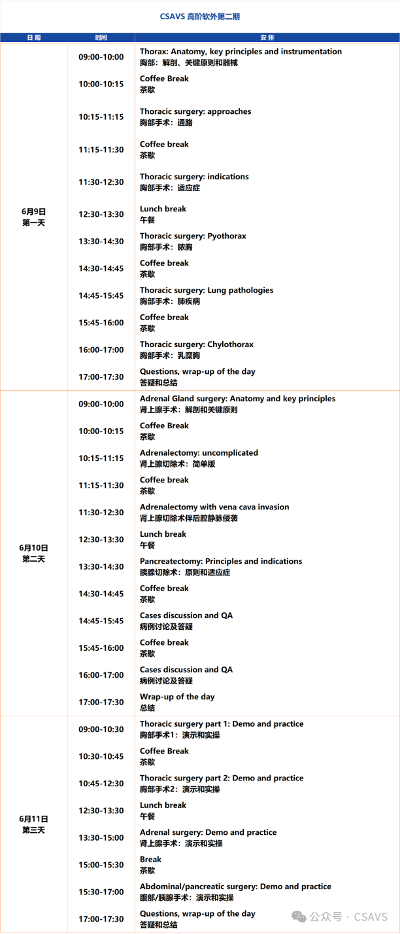
This course is taught by experts certified by the European College of Veterinary Surgeons, offering a rare learning opportunity. It is specifically designed for veterinarians eager to enhance their small animal soft tissue surgery skills. The second session of the course (June 9 - 11) focuses on thoracic, adrenal, and abdominal/pancreatic surgeries. The course begins with the study of thoracic anatomy and key principles, followed by an in-depth exploration of different approaches and indications for thoracic surgeries. Participants will have the opportunity to learn surgical treatment methods for pyothorax, pulmonary diseases, and chylothorax. The second day's curriculum centers on adrenal surgeries, covering anatomy, simple adrenalectomy, and complex cases of caudal vena cava invasion. Additionally, the principles and indications of pancreatectomy are explained. The third day is dedicated to hands-on practice, where participants will perform thoracic, adrenal, and abdominal/pancreatic surgeries through demonstrations and practical operations. The third session of the course (June 12 - 14) covers head and neck, esophageal, ear, and jaw surgeries. Starting with head and neck anatomy and key principles, the course proceeds to detailed explanations of lymph node dissection, thyroidectomy/parathyroidectomy, and laryngeal paralysis surgery. On the second day, participants will learn the anatomy, indications, and surgical approaches for mandibulectomy and maxillectomy. The third day also includes a hands-on session with demonstrations and practical exercises for head and neck as well as jaw surgeries, ensuring that participants can translate theoretical knowledge into practical skills. Both sessions include coffee breaks and lunchtime, providing opportunities for participants to communicate and rest. At the end of each day, there will be a Q&A and summary session to help participants reinforce their learning. Through these two sessions, participants will acquire a systematic understanding of small animal soft tissue surgery knowledge, improve their clinical diagnosis and treatment techniques, and align with international advanced standards.
